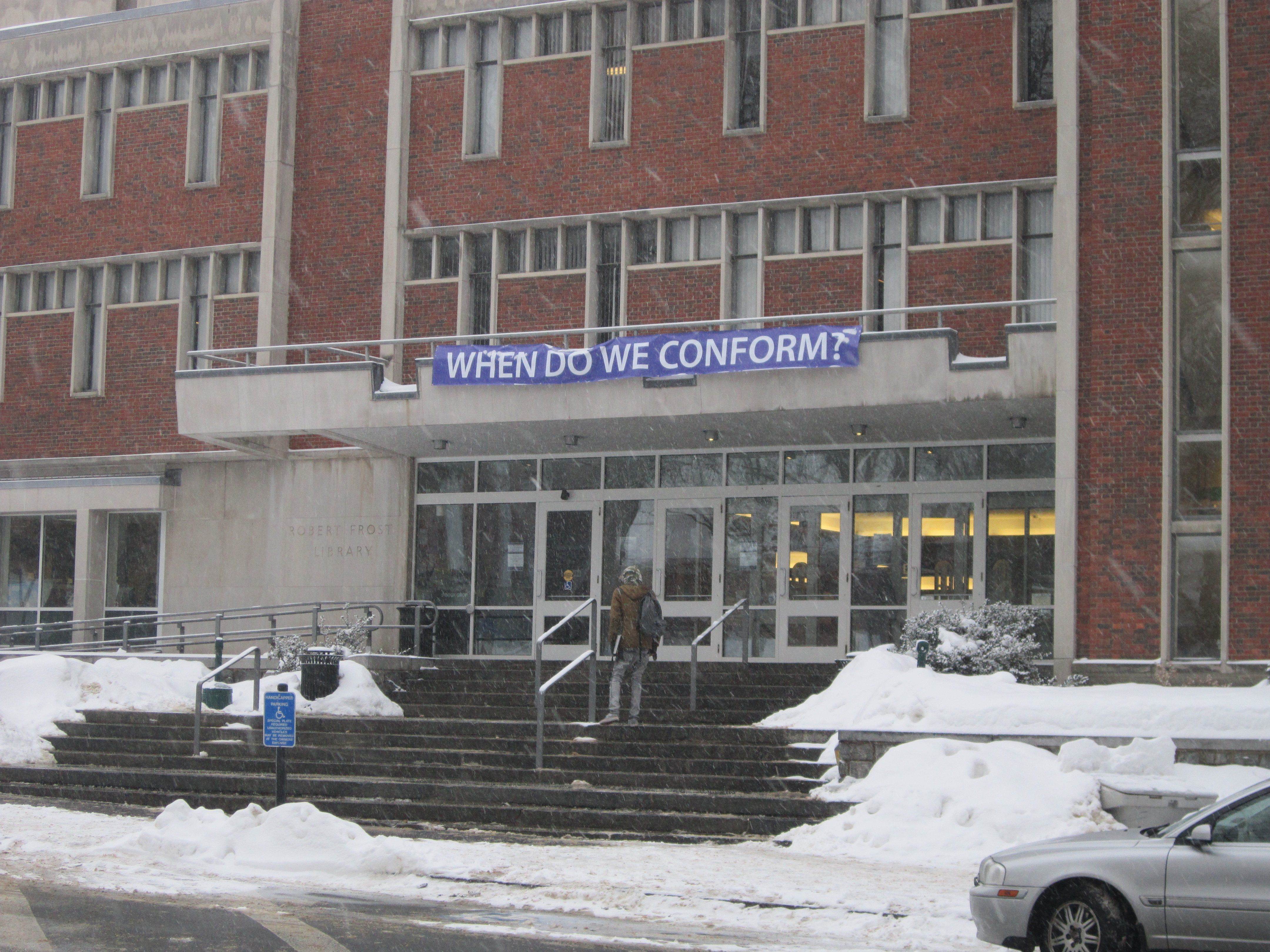

Ask Big Questions, a new campus-wide initiative started by Provost Peter Uvin, began last Tuesday. This is the newest of Provost Uvin’s projects to foster as stronger sense of community and promote dialogue, exchange and reflection.
“The aim of Ask Big Question is to bring out campus together in a meaningful way,” said Tania Dias, strategic planning assistant to the provost. “By listening and sharing our stories, we form new friendships, we understand each other better and we grow into a stronger, tighter community.”
The idea for Ask Big Questions originally came out of the Teagle Workshop, a discussion facilitated by Religious Life on questions of faith and education. Ask Big Questions is part of a nationwide initiative by Hillel, the largest college student Jewish organization in the world, and is active in more than 20 campuses across North America. At Amherst, however, the initiative is not tied to any particular religious association or student group.
“Rabbi Bruce [Bromberg Seltzer] came to me with this idea,” Provost Uvin said. “But from the very beginning I wanted to position it as not just a Hillel or student thing, but an all-inclusive college thing.”
To date, there have been 10 Ask Big Questions sessions with more than 130 people participating.
“The feedback has been great,” Dias said. “There has been a very good, interesting mix of people in these sessions — a lot of students, a lot of staff and some faculty.”
The current Ask Big Questions theme is framed around the question “When do we conform?” Two trained facilitators guide each session through a structured set of activities and dialogues ranging from viewing photos regarding conformity, discussing George Orwell’s 1936 essay “Shooting an Elephant” on conforming to expectations, and reflecting on the impact of conformity at Amherst.
Facilitators include a diverse mix of populations: students of different cultural, geographical, and college-affiliations; staff and administrators from student centers and faculty. Sessions are available by online sign-up and are available daily with varied time slots in order to accommodate varied schedules.
Members of the community who have participated in Ask Big Question sessions have many different reasons for going.
“I was motivated to participate in Ask Big Questions because I’m interested in connecting with members of the Amherst community I don’t already know,” said Andy Tew, an Ask Big Questions facilitator and Residential Life Area Coordinator.
Virginia Hassell ’16, another facilitator, agreed.
“At Amherst, it is easy to settle within our immediate communities, whether that be a team or club that guarantees a certain level of safety and comfort,” Hassell said. “While I cannot deny falling into this pattern, I recognize it, and I believe that ABQ is a chance for us all to better understand ourselves, our best friend, and those unfamiliar to us on campus.”
One goal of Ask Big Questions is to promote a genuine sense of community, and it hopes to achieve that goal by using dialogue instead of debate.
“People at Amherst love to argue,” said facilitator Cristian Navarro ’16. “Interactions usually turn into complicated debates or long discussions. I’m not saying this is bad — we need to challenge our knowledge and capabilities. But I believe we need more conversations, instead of argument battles.”
Some facilitators, such as Nicole Umina ’15, say that Ask Big Questions is already beginning to change their behavior.
“Ask Big Questions has influenced the way I ask questions and how I listen to responses,” Umina said. “I now seek to ask the ‘right’ questions instead of mundane ones people hear all the time. It always makes me laugh to when people ask, ‘How are you?’ while swiftly walking past you with no intention of stopping to hear how you’re actually doing. I’m guilty of it too!”
Another of the program’s goals is to provide “the right environment to support the life of meaningful interpersonal connection” Tew said. “The hidden stories, private reflections and unanswered questions that we usually hold to ourselves are just waiting to come out if they are given the right conditions.”
Umina said Ask Big Questions is especially appropriate for Amherst College because it allows the diversity of perspectives to be voiced in a nonacademic context.
“I find that, at Amherst especially, people tend to have so much to offer and so many stories to share,” Umina said. “They often disguise their many experiences and talents as they go about their routines. I think ABQ is a great way for helping us to feel comfortable considering each other’s perspectives and challenging what we often take for granted.”
Ask Big Questions hopes to continue fostering dialogue, conversation and exchange beyond its sessions and to ultimately transform campus culture so that it is more open, accepting and sharing.
“The long-term vision is to literally engage the whole campus in thinking about the Big Question — formally in ABQ and informally over Val, at pick-up basketball games, walking to class,” Dias said.
“All it takes is a little bit of effort,” Hassell added.